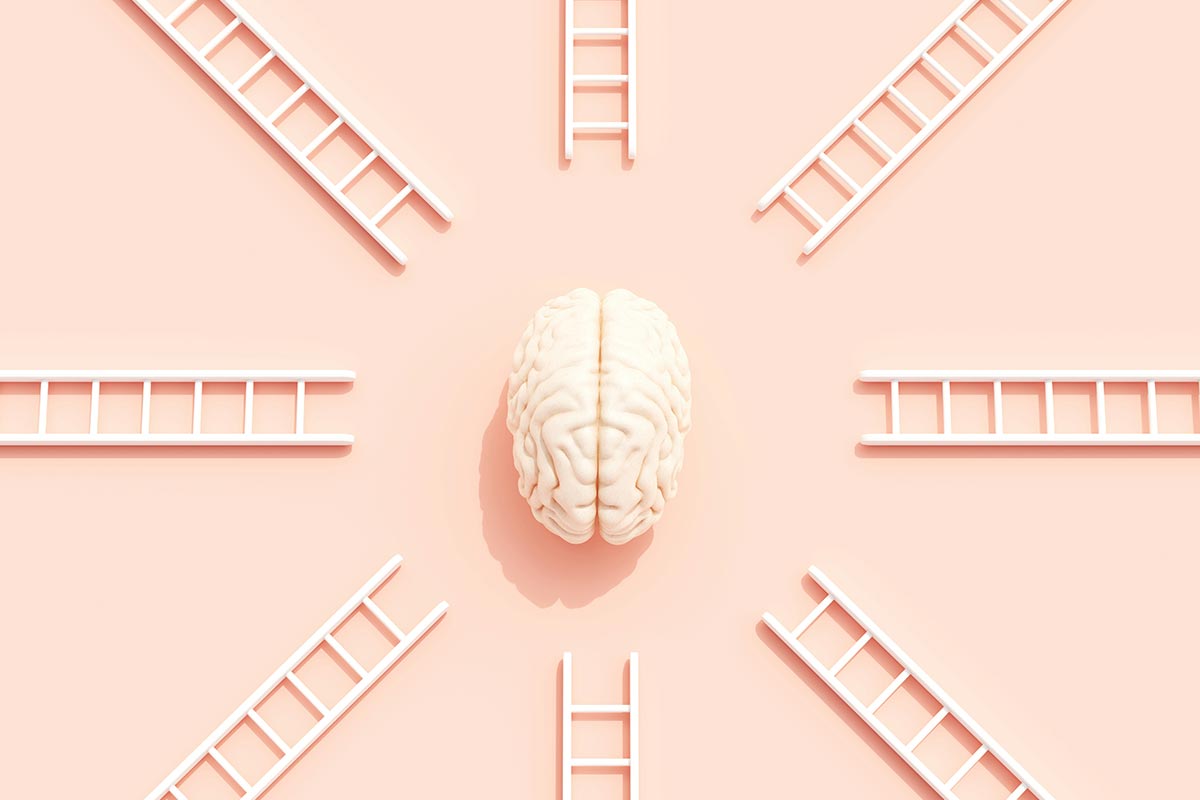Serotonin, Your Gut, and Mental Health
![]() Redeemed Mental Health
on
June 15, 2024
Redeemed Mental Health
on
June 15, 2024
 Most people know of serotonin as the “happiness” chemical. That’s so much true that you can buy jewelry with the chemical formula for serotonin alongside words like “Happy”. The truth is, serotonin is much more complicated than simply prompting an emotion or a reaction in the brain. Instead, it’s a chemical known as a neurotransmitter, which works to move messages between the nerve cells in the brain and body. Its role is in mood, cognition, reward, learning, memory, and physical processes like the digestive tract, organ development, and bone metabolism. As a result, serotonin has wide-reaching impacts on a significant portion of your body’s daily functions.
Most people know of serotonin as the “happiness” chemical. That’s so much true that you can buy jewelry with the chemical formula for serotonin alongside words like “Happy”. The truth is, serotonin is much more complicated than simply prompting an emotion or a reaction in the brain. Instead, it’s a chemical known as a neurotransmitter, which works to move messages between the nerve cells in the brain and body. Its role is in mood, cognition, reward, learning, memory, and physical processes like the digestive tract, organ development, and bone metabolism. As a result, serotonin has wide-reaching impacts on a significant portion of your body’s daily functions.
In fact, if your body isn’t producing or processing serotonin like it should be, you’ll see major issues across your body. That can mean depression, fatigue, gut health problems, and much more. Worse, because mental health disorders often result in reduced serotonin production or absorption, side-effects of mental health disorders like substance abuse also reduce serotonin production, and stress reduces your ability to produce serotonin, these issues are likely to be self-aggravating, meaning that depression results in reduced serotonin, resulting in a downward spiral where you feel worse and worse.
Understanding serotonin, how it impacts the gut, and your mental health can give you better insight into that process so you can get the help you need.
What is the “Gut-Brain Axis”?
The “Gut-brain Axis” is a term used to refer to how changes in the gastrointestinal tract impact mental health and vice versa. Persons who have mental health problems such as depression and anxiety are significantly more likely to experience major problems with digestion and gastrointestinal health. Vice-versa, individuals with gastrointestinal health problems such as chronic diarrhea, Cronn’s disease, etc., are more likely to experience mental health problems such as fatigue, depression, and anxiety.
This axis happens because serotonin impacts the nervous system. This includes the central nervous system, which runs from your brain down your spinal column, and into the body. It also impacts the Enteric nervous system, or the network of neurons that line the gut. That also includes the Vagus nerve, which is well-known as the nerve that runs from the brain to the colon – and which plays a major role in nausea and vomiting. As a result, individuals experiencing a significant amount of stress are more likely to experience nausea and vomiting.
Finally, the gut-brain axis refers to how serotonin actively influences the ecosystem of bacteria and other microorganisms that live in the gut and vice-versa. When things go wrong with gut bacteria, you experience negative effects that impact the rest of the body. That in turn influences mental state, emotional regulation, and regulation of the adrenal and pituitary axis – meaning you have more trouble with managing your emotional state and your mental health.
Serotonin’s Role in the Body
Serotonin plays a far-reaching role in the body. In most cases, it can be considered a communicator. It transmits messages across the central nervous system and across the enteric nervous system – which goes on to impact the adrenal system, pituitary system, metabolism, and multiple other functions. This allows the reward circuit in the brain to function by transmitting signals to and from the brain and body as necessary. It allows the brain to properly process information. It regulates emotions and mood. It also helps to regulate feelings of anxiety and worry – both through the central nervous system and through the HPA (hypothalamic-pituitary-adrenal axis) which is behind the human stress response and cortisol production.
Eventually that breaks down into:
- Emotional Regulation – Healthy serotonin production means you can regulate emotions more easily and manage stress, negative emotions, etc., as they come up.
- Stress Regulation – Serotonin impacts cortisol production and adrenal production, both of which cause stress and feelings of stress in the body. Healthy serotonin levels mean you’re better able to regulate that in the body, which means stress levels better match what’s happening, you process cortisol more quickly, and go back to feeling better more quickly.
- Digestion – Serotonin impacts microbial gut health as well as nerve regulation. Nerves impact muscles moving food through the digestive tract. Low levels of serotonin can lead to indigestion in the form of constipation and poor nutritional absorption. However, serotonin also impacts the vagus nerve, which impacts the colon as well as your vomit and nausea reaction. This can result in chronic diarrhea and nausea.
- Sleep – Serotonin plays a significant role in healthy sleep-wake cycles as well as in having energy throughout the day.
As a result, people with low serotonin or unregulated serotonin reuptake typically experience symptoms like:
- Depression
- Anxiety
- Fatigue
- Insomnia
- Chronic pain
- Brain fog
- Memory issues
All of that can be self-reinforcing, which means you feel worse because of low serotonin, and then produce less serotonin because of the side-effects. As a result, depression, anxiety, and even gut health problems often spiral and become worse over time if you don’t get treatment, even if the original issue is a physical one rather than a mental one.
Of course, Serotonin also plays many other roles in the body. Therefore, it can impact your body in other ways. Often, that means you’ll see side-effects from mental health and from gut health problems that can look like a range of mental and physical health problems. However, mood regulation, gut health, and fatigue issues are generally the most common problems and very often tie in together – so that if you start with one, you eventually end up with all three.
Getting Help
Getting help for mental health problems, especially when they are tied into physical health problems, can be complicated. For example, it’s often difficult or impossible to tell which came first, gut health problems or mental health problems. For that reason, the starting point is often medication and taking steps to ensure you’re producing serotonin at a healthy level.
You might be aware that one of the most common medications for people with depression is an SSRI or a Selective Serotonin Reuptake Inhibitor. This class of drugs reduces how quickly your brain breaks down or reabsorbs serotonin, meaning you have more serotonin available in the brain and in the body, even if serotonin production is low. These drugs are safe, non-addictive, and allow you to increase serotonin levels in the body, which can be used as either a short-term measure to aid in treatment or a long-term measure if your body is not producing enough serotonin.
In each case, treatment is generally also backed up with additional treatment including nutritional therapy, behavioral therapy, and counseling. That means creating a tailored and personalized approach to treatment, adapting it as you respond or not. That can also include medication for gut health, it can include exercise and nutrition, it can include behavioral treatment to help you improve how you regulate emotions even when you feel bad. All of that comes together to give you a toolkit to better manage your mental and physical health, both of which will work to improve each other.
Otherwise, getting help for serotonin issues, even if they are mental health problems or rooted entirely in physical health problems, means getting a tailored approach that specifically targets your actual health problems and works to respond to those as you move forward in treatment.


 Diets that are high in caffeine and sugar can
Diets that are high in caffeine and sugar can  What do Nutritional Deficiencies Look Like in Mental Illness?
What do Nutritional Deficiencies Look Like in Mental Illness?





















